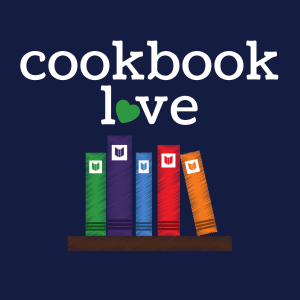
Welcome to another episode of the podcast. Today I want to talk about writing food memoirs. One of my private coaching clients is discerning the format of the food/cooking book she wants to write. Part of her wants to write a memoir and part of her a cookbook. One would be more story-driven, and the other more recipe-driven. She was then questioned whether she needed to write a book proposal for a memoir and wanted me to tell her what to do.
As a coach, I try to avoid telling my clients my opinion about what they should do. I believe that they have internal guidance that directs them what to do and helps them have their own back and feel good about their decision. So, I do feel that not giving a direct response is a challenge because that’s often what my coaching clients desire – someone to validate their next step. As a coach, I certainly want to facilitate their decision-making process, and let them create their own results. But, in this instance, I also wanted an informed answer, from someone in the trenches, about whether writing a book proposal for her book concept was necessary.
To get an informed answer, I emailed colleagues who are editors at traditional publishing houses and university presses. I asked them if they received a submission for a food memoir, would they expect to see a proposal or manuscript? Much to my delight, they all responded. (Never underestimate the power of asking and never be afraid to ask!) And here are their answers:
Editor #1: She needs to write a proposal but does not need to write a full manuscript.
Editor #2: I would advise the author to put together a proposal if possible. It is a wonderful and helpful exercise and ultimately will be a strong snapshot for a publisher or agent to gather information quickly about the project. It is important to include marketing thoughts and comparable books as well.
Editor #3: My recommendation would be to put together a book proposal first to solicit either an agent or a traditional publisher, whether or not she has a manuscript completed. When soliciting an agent or editor, they are going to be bogged down with submissions so even if she has a completed manuscript, a comprehensive proposal is going to be much more compelling to catch their eye. My recommendation would be to keep it simple but engaging (around 8-10 pages is about perfect because you can include a lot of important information without asking too much time of the agent/editor.)
Editor #4: A proposal is a way to go. That’s what literary agents and editors/publishers are going to want to see: an outline, sample chapter, author bio, competitive/comparative title overview, marketing strategy.
So if you’re reading this, and want to find a publisher for your cookbook or your food memoir or any work of non-fiction related to health, wellness, or food, write a proposal. Don’t write your entire manuscript. To read more about writing a proposal, here’s a bunch of blog posts that will be helpful to you:
Writing a Cookbook Proposal – 5 Tips for Success
Q & A: How Do I Write a Cookbook Proposal that Attracts Agents and Publishers?
Cookbook Proposals are Important
Things We Mention In This Episode:
Download a copy of the Cookbook Publishing Roadmap
Please join our Confident Cookbook Writer Facebook Group
More Episodes
Create your
podcast in
minutes
- Full-featured podcast site
- Unlimited storage and bandwidth
- Comprehensive podcast stats
- Distribute to Apple Podcasts, Spotify, and more
- Make money with your podcast
It is Free
- Privacy Policy
- Cookie Policy
- Terms of Use
- Consent Preferences
- Copyright © 2015-2024 Podbean.com






